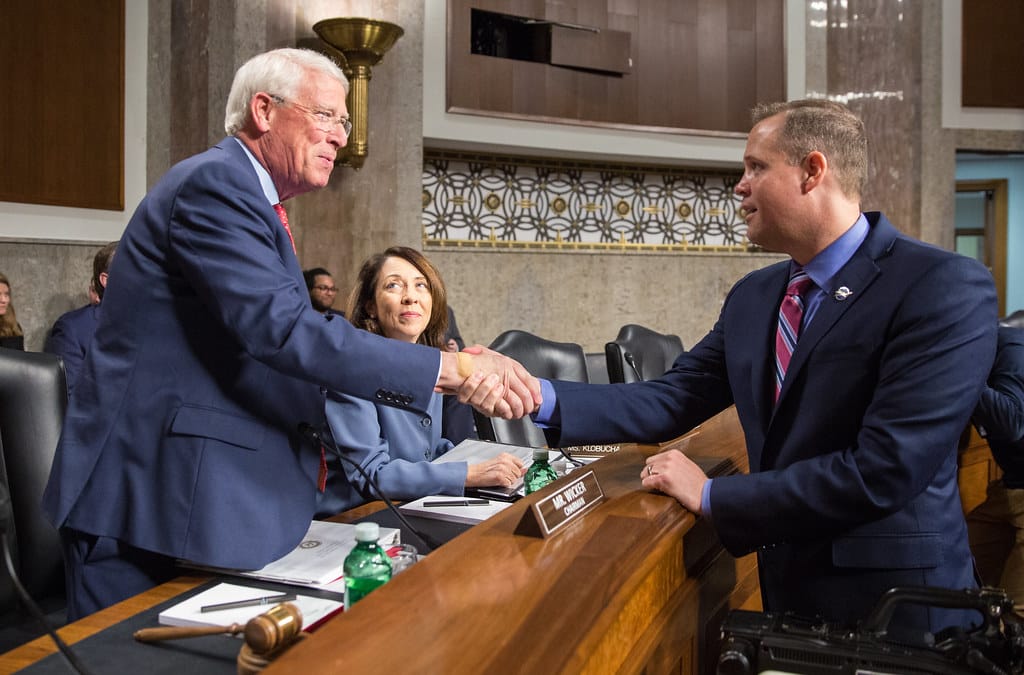
Congress
The Act requires the NTIA to harmonize more than 100 federal initiatives to expand high-speed internet. It also increases reporting and oversight requirements.

 Photo of Sen. Roger Wicker, R-Mississippi
Photo of Sen. Roger Wicker, R-Mississippi
WASHINGTON, May 28, 2024 – The NTIA Reauthorization Act, passed by the House on May 15, is an attempt by Capitol Hill to bring oversight to the administration of more than 100 government-led broadband expansion efforts that are currently administered by 15 different agencies.
The Reauthorization Act mandates that the National Telecommunications and Information Administration develop a strategy for coordinating federal broadband initiatives in order to effectively close the digital divide. The key provision of the bill stemmed from the PLAN for Broadband Act, introduced by Reps. Tim Walberg, R-Michigan, and Annie Kuster, D-New Hampshire, in July 2023.
The bill’s enactment would impose intensified workloads and reporting demands on NTIA, which is already managing the $42.5 billion Broadband, Equity, Access and Deployment program and the $2.75 billion Digital Equity Act programs.
Reporting and Congressional briefing requirements under the NTIA Reauthorization Act would coincide with NTIA’s deadline for final approval of states’ and territories’ subgrantee selections in administering the BEAD program.
The PLAN for Broadband Act provision came in response to a Government Accountability Office report released in May 2022, that found current federal broadband initiatives to be fragmented and overlapping.
Agency officials have noted that programmatic differences, some set by statute, limit their ability to align programs. For example, programs may have differing definitions of eligible areas, populations, and broadband speeds.
Based on the GAO’s recommendation, the PLAN for Broadband Act calls for NTIA’s national strategy to prevent duplicative efforts and ensure resources reach unserved and underserved communities.
The bill would require GAO – an independent, non-partisan agency that investigates how the federal government spends taxpayer dollars – to evaluate the efficacy of NTIA’s national strategy and implementation plan within one year of submission.
The NTIA would have 18 months from the law’s enactment to develop the national strategy, which must consider ten additional factors.
Approximately eight months after developing the strategy, the NTIA must submit an implementation plan to Congress, detailing roles, responsibilities, and performance measures for federal broadband programs.
Shortly after submitting the plan, the NTIA and agency heads must brief Congress on its contents.
In addition to the increased responsibilities for improving broadband coordination that the NTIA gained at the end of 2020, the Reauthorization Act requires the NTIA to modify its coordination efforts with the Federal Communications Commission regarding spectrum management. FCC Commissioners Jessica Rosenworcel and Brendan Carr have expressed bipartisan support for this initiative.
The House vote, with 374 in favor and just 26 against, demonstrated deep bipartisan support for the measure, which also enjoys bipartisan backing in the Senate.
The idea of a national strategy to close the digital divide has garnered Senate support. In July 2023, Sen. Roger Wicker, R-Mississippi, introduced the PLAN for Broadband Act in the Senate, with bipartisan backing from co-signers Sens. Ben Ray Luján, D-New Mexico, John Thune, R-South Dakota, Peter Welch, D-Vermont, Alex Padilla, D-California, James Lankford, R-Oklahoma, and Tommy Tuberville, R-Alabama.
The NTIA Reauthorization Act was read in the Senate on May 16, before being referred to the Committee on Commerce, Science, and Transportation, of which Sen. Wicker chairs.

![Read more about the article How to Make a ClickUp Roadmap 2023 [Planning for Action]](https://sonicsurfisp.com/wp-content/uploads/2023/01/how-to-make-a-clickup-roadmap-2023-planning-for-action-300x180.png)
